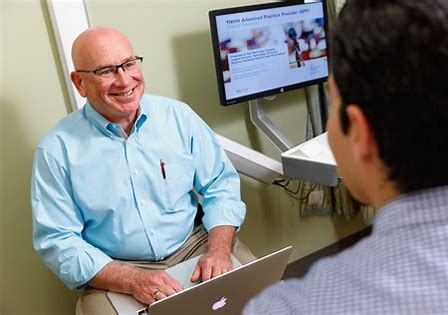
Research conducted by the National Institute on Aging (NIA) says the normal aging process brings about changes that may affect sex. It says the sexual organs change with age.
In females, the vagina may become narrower, with less lubrication. Menopause may also affect sexual desire. In males, erectile problems may become more common. People may also find that physical changes, such as weight or muscle changes, affect how they feel in their bodies.
Illness, disability, medications, or surgery can also impact sexual desire and intimacy. However, not all people experience these problems, and treatments are available for those who do.
Some researchers have studied sexual satisfaction in older adults and found positive results. A 2019 survey of people 60 years and older found that sex was important to most people, with over 70 per cent reporting being sexually attractive for their age.
Another 2019 study found that older adults reported no significant difference in intimacy. A third of older adults 60-82 years reported more sexual thoughts and sexual activity than the average younger adult.
However, other factors can affect the sex lives of older adults. The Health in Aging Foundation reports factors that may affect sex life as people age: low sex drive affects around 50 per cent of sexually active females aged 75-85 years, around 4 in 10 older females report being unable to climax, erectile dysfunction is the most common sexual difficulty in males, above the age of 80, around 15-25 per cent of males reported engaging in sexual activity,
Erectile dysfunction becomes more common in males as they age. People may find it harder to get and maintain an erection. People may also find an erection becomes less firm than it has been previously.
If erectile dysfunction becomes a regular occurrence, a person should consult a doctor. A doctor can treat erectile dysfunction by prescribing medications such as Viagra.
After the age of 50, some males may have a decrease in testosterone levels. This may affect sex drive and the time it takes for people to become aroused and get an erection. Erections may be less firm, may last for a shorter time than before, and it may take longer to ejaculate.
People may feel differently about their bodies as they age, and a negative self-image may make them lose interest in sex or avoid being intimate with a partner.
In older age, the vagina can become shorter and narrower, with the vaginal wall becoming thinner and stiffer. There may also be less vaginal lubrication. This may make vaginal penetration painful or reduce a person’s desire to engage in certain sexual activities. However, a person can use lubricants to help combat this issue.
Experiencing menopause can affect a person’s sex life, as menopause causes hormone changes.
Some menopausal people may not notice any changes in their sex life, while others may experience: the vagina becoming thinner and drier, which may make sex feel uncomfortable, a lower sex drive, difficulty becoming aroused, disturbed sleep that can cause people to feel more tired than usual mood swings that may impact sexual drive or desire.
A doctor can prescribe hormone replacement therapy to help relieve the symptoms of menopause.
A 2019 study found that in older females, factors for avoiding sex included: relationship satisfaction
relationship intimacy, physical and mental health,
Researchers found that, in older females, relationship factors had the same importance as health-related factors in sex avoidance. Feeling uncomfortable about any bodily changes may impact intimacy and sex life.
For more research-backed information and resources for women’s health, please visit our dedicated hub. People may find the following factors may help people to maintain a satisfying sex life as they age. It is important to talk openly with a partner or partners about any changes or issues people are experiencing that may be affecting their sex life.
Discussing any sexual issues with a partner may help people increase intimacy and boost their sexual relationship.
Staying physically active and maintaining regular exercise will support heart health, strengthen muscles, and help mental health. People may find staying physically active helps them feel more interested in sex.
Masturbation may help people explore what they enjoy and become familiar with any changes in their sexual responses. This may help people find it easier to communicate what they like to a partner. Masturbation may also help to boost well-being and improve body image and self-esteem.
Experimenting with new activities, positions, people, places or fantasies may bring excitement to a person’s sex life. People may want to try new positions using pillows or wedges or try activities not involving the penis or vaginal penetration.
However, those who are perimenopausal still need to use effective birth control if they do not wish to become pregnant. Males without a vasectomy also need to use contraception to prevent unwanted pregnancies.
Using barrier methods of contraception, such as condoms or dental dams, can help to prevent sexually transmitted infections. If erectile dysfunction is affecting a person’s sex life, medications may help, such as testosterone. It is important to discuss any potential side-effects with a healthcare professional.
If sex is painful due to vaginal dryness, prescription hormones, such as vaginal oestrogen, may help. People may also want to try over-the-counter water-based lubricants or moisturisers to help reduce dryness. Hormone therapy may help symptoms of menopause and may help to increase sexual drive.
Talking with a counsellor specialising in age, sex and relationship issues may help people experiencing difficulties.
If there are problems with intimacy or sex in a relationship, it may be due to mental or emotional factors. Seeing a therapist, either individually or with a partner, may help to resolve these.
However, there are many steps people can take to enjoy a satisfying sex life as they age. Maintaining a healthy lifestyle, keeping active and communicating clearly about how they feel about sex may help.
Medications or hormone therapy may also help with issues such as erectile dysfunction or menopause symptoms. If people face issues with their sex life as they age, they may want to talk with a healthcare professional or counsellor.
- A Medical News Today report











